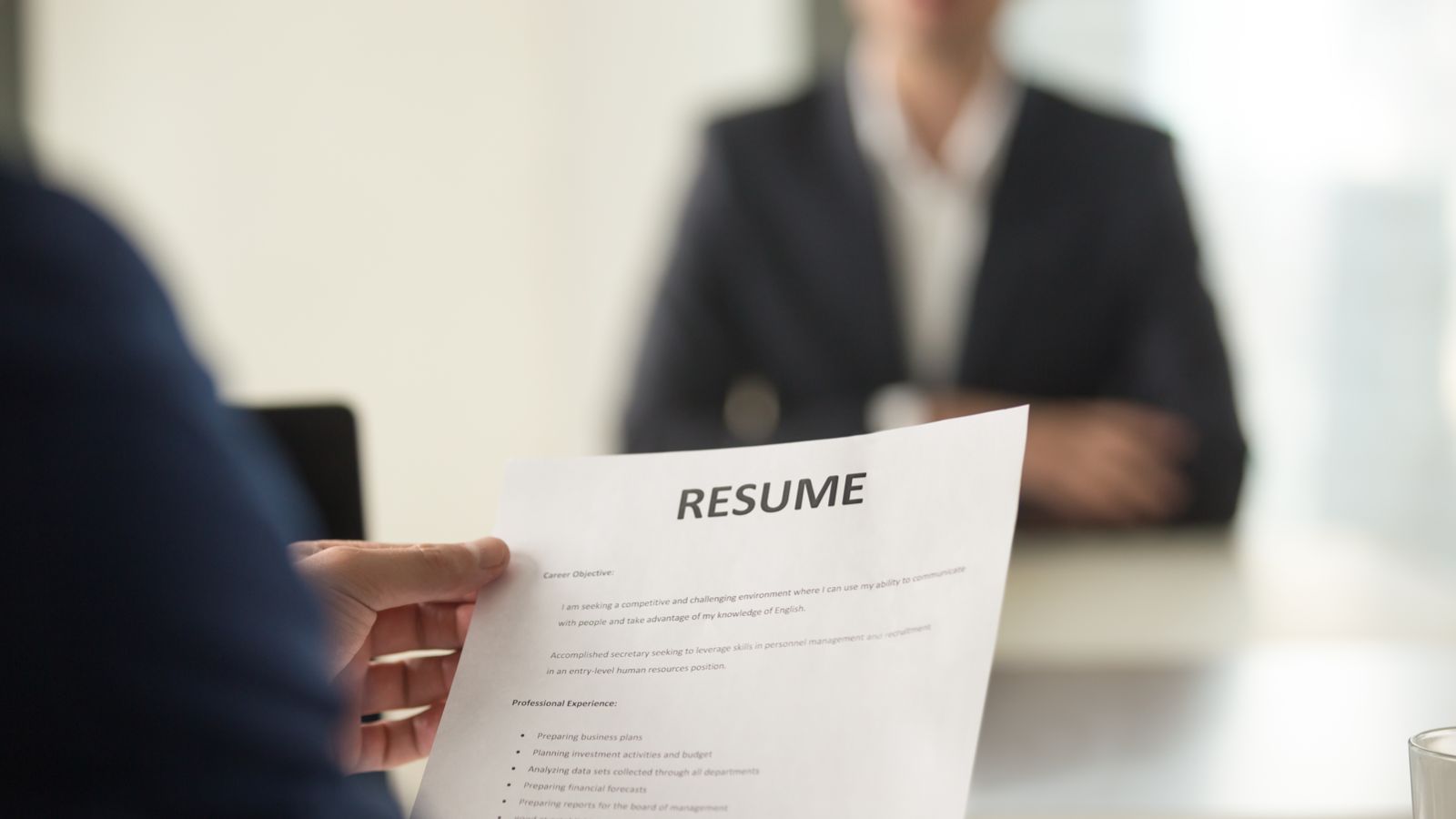Frustrating as it may be, it can be incredibly hard to get a new job when you’re in your fifties or older. From social dynamics and ageism to a desire for long-term commitment, there are many reasons why this is the case. In this article, we’ll delve into 17 of them.
Cultural Emphasis on Youth

Certain companies unfortunately have a preference for projecting a youthful image to their customers or clientele. They associate youth with energy and innovation and may have concerns about older employees making the company appear outdated or not keeping up with the times.
Generational Gaps in the Workplace

Some companies find it difficult to integrate different age groups. As shared by the Harvard Business Review, “When employees of different generations shut down each other’s contributions as either outdated or naïve, resentments grow and trust diminishes.” This, combined with generational differences in work styles and communication, can cause discomfort and lead companies not to hire older employees.
Social Dynamics and Ageism

Older workers are often seen as less socially active or adaptable, and there are misconceptions about older employees’ ability to fit into modern workplace culture. An age bias often affects social and professional interactions, and employers may go for younger candidates to avoid this.
Perceived Threat to Younger Employees

In competitive work environments, the introduction of older, more experienced workers can be seen as a threat to younger employees. The concern revolves around competition for promotions and career advancement, where younger workers might feel overshadowed or outmatched by the seasoned expertise of older candidates. To avoid upsetting younger workers, employers may opt not to hire older people.
Gerontophobia: Fear of Aging

A fear of aging, or the psychological discomfort with the idea of aging and mortality, may be a reason why employers don’t hire those over 50. They’re projecting their own fears and insecurities onto older employees, making them less desirable hires as a result.
Concerns Over Skill Relevance

Many companies have concerns about older workers’ skills, particularly in rapidly evolving fields like technology. According to The Centre for Research Into the Older Workforce, “Older workers are less likely to have formal qualifications than younger ones which might hold them back in terms of taking training and career development.” A perceived gap in current industry knowledge and trends is another reason that over-50s may not be the first choice for a hire.
Higher Perceived Costs

Employers often consider older workers to be more expensive, considering potential higher salary demands and increased healthcare and insurance costs. Despite evidence that older workers bring substantial experience and stability to roles, which can offset these assumed costs, companies are still concerned about long-term financial commitments.
Desire for Long-Term Commitment

When selecting a candidate, most companies hope that they’ll stick with the role for the long run, developing and growing within the company. When it comes to those in their fifties and over, however, there is uncertainty about their long-term plans, including retirement. Most companies have a preference for investing in younger employees with longer career horizons.
Perceived Inflexibility

As shared by LSE, research has shown “that it was far more common for older workers to face negative stereotypes, including perceptions that they are less adaptable, lack physical capabilities, have limited technological competence, are less trainable, and are resistant to change.” These stereotypes about resistance to change and new ideas, along with assumptions about lower adaptability to evolving work environments, cause employers to overlook their potential.
Underestimation of Experience

There’s unfortunately a trend of employers undervaluing the experience and wisdom that older workers bring to the table. Companies often prioritize recent qualifications over years of accumulated knowledge and experience that someone in their 50s may have, which can actually offer unique insights and problem-solving skills.
Health and Stamina Concerns

Concerns and misconceptions about the health and stamina of older workers can lead to biased hiring practices. Despite many older individuals maintaining robust health and high levels of productivity with age, stereotypes about their declining capabilities persist, meaning younger workers are often hired instead.
Diversity and Inclusion Focus

While many organizations emphasize diversity and inclusion, which should be a good thing for older candidates, age diversity is often overlooked. The focus tends to be more on race and gender, missing the opportunity to benefit from the varied perspectives that age diversity brings to the workplace.
Recruitment Bias

“More than a third (36%) of 50–69 year-olds feel at a disadvantage applying for jobs due to their age,” as per the Centre for Ageing Better. This is because of the unconscious bias in hiring processes favoring younger candidates. Companies over-rely on recruitment strategies that appeal to younger demographics and neglect targeting or appealing to older job seekers.
Workplace Dynamics

Employers sometimes worry that older workers might disrupt existing team dynamics or hierarchical structures. This concern can lead to hesitancy in hiring and integrating them into teams, despite their ability to bring valuable experience and stability.
Technological Adaptability

The NIH says, “When it comes to technology, older adults are often stereotypically described as a homogeneous group that are lagging behind.” Assumptions about older workers’ inability to adapt to new technologies are often a reason why companies won’t hire them. Employers often overlook the potential for ongoing learning and adaptability capabilities.
Retirement Proximity

Some companies will have concerns about the short-term tenure of older employees before retirement. They may be reluctant to invest time and money in employees who might soon leave the workforce and opt for younger candidates instead. These companies often misunderstand that older workers may have a desire for continued employment.
Market Perception

Some companies are concerned about how hiring older employees might affect their market perception. They fear it could impact their brand image negatively, underestimating the positive influence that a diverse and inclusive workforce, including age diversity, can have on their reputation.
Read More: 17 Things That Are Sadly Disappearing From Everyday Life

Life in modern times seems to evolve at an unprecedented pace. Certain things we couldn’t live without a few years ago are rapidly becoming redundant. Let’s take a peek at 17 such victims of modernization and why they’re slowly but surely disappearing.
17 Things That Are Sadly Disappearing From Everyday Life
15 Ways To Tell If Someone Is Not a Good Person

While it’s important to avoid quick judgments, certain behaviors can be strong indicators of a person’s character. Here are 15 ways to discern if someone might be a bad influence or possess harmful traits.
15 Ways To Tell If Someone Is Not a Good Person
19 Untrue American Stereotypes That Are Widely Believed Internationally

Stereotypes and misconceptions can be misleading and frustrating, especially when they pertain to nationalities. Let’s explore and debunk some common myths about America, as shared by internet users.
19 Untrue American Stereotypes That Are Widely Believed Internationally
18 Everyday Items That Have Now Become Too Expensive For the Average American

There are some items that we have to pay for every single day. But for the average American, these mundane things are becoming too expensive. In this article, we will show you 18 of these pricey day-to-day items.
18 Everyday Items That Have Now Become Too Expensive For the Average American
18 Hard Truths to Accept in Life, According to Boomers

The older we become, the more we learn about life, and with that come the truths that we need to accept. Boomers have had their fair share of truths as they’ve grown through the years. Here are 18 hard truths that every boomer wants us to know.
18 Hard Truths to Accept in Life, According to Boomers

